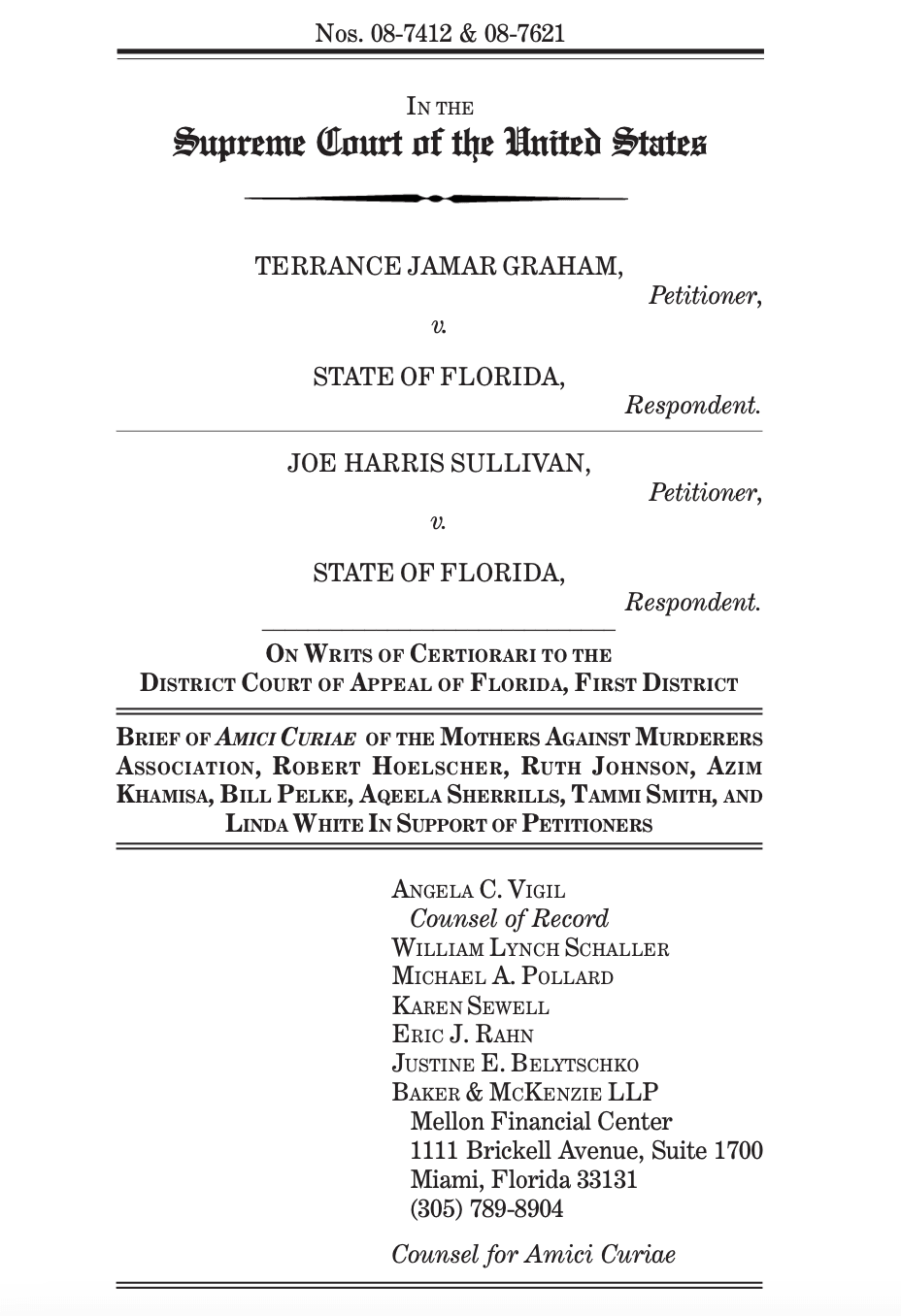
Summary of Argument
Recognizing that this Court is examining whether criminal acts less severe than murder merit a sentence of life without parole where the offenders are juveniles, amici urge the Court to hold that this sentence violates the Eighth Amendment’s prohibition against cruel and unusual punishment. Victims differ in their views on proportionality of punishment for juvenile offenders and the importance of allowing juvenile offenders to be released from prison upon rehabilitation. In considering what is cruel and unusual, therefore, this Court should not assume all victims would support the continued imposition of life without parole sentences upon juveniles. Amici contend that proportionality, rehabilitation and forgiveness must be the governing principles of juvenile sentencing. These principles are ill-served by sentencing children to life without the possibility of parole.
Open Amicus Brief as PDF